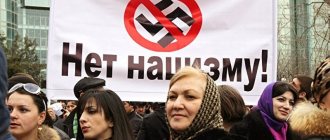Commentary to Art. 85 of the Criminal Code of the Russian Federation
The right to ask for a pardon is the constitutional right of a convicted person (Part 3 of Article 50 of the Constitution of the Russian Federation); only the convicted person (or who has served his sentence) can apply for a pardon. Previously, this right was granted to the relatives of the convicted person, members of the public, and the administration of correctional institutions. It may be noted that in the penal legislation there is still a rule according to which the administration of a correctional institution can file a petition for pardon in relation to positively characterized convicts (Part 5 of Article 113 of the Penal Code of the Russian Federation).
Pardon is the exclusive prerogative of the President of the Russian Federation (clause “c” of Article 89 of the Constitution of the Russian Federation), it is carried out by issuing an individual legal act - a decree of the President of the Russian Federation on pardon. In the USSR, the Presidium of the Supreme Soviet of the USSR and the corresponding highest bodies of state power of the Union republics had the right to pardon.
The act of pardon, like the act of amnesty, does not eliminate the criminality and punishability of the act, does not cancel or cast doubt on the court verdict. Pardon, like amnesty, is not rehabilitation; it is applied to a person who has been correctly convicted.
From 1992 to 2001, there was a Commission on Pardons under the President of the Russian Federation, created in accordance with Decree of the President of the Russian Federation of January 12, 1992 No. 17 “On the Commission on Pardons”. By Decree of the President of the Russian Federation of December 28, 2001 N 1500 “On commissions on pardons in the territories of the constituent entities of the Russian Federation,” this Commission was abolished, and instead commissions were created in the constituent entities of the Russian Federation. The same Decree approved the Regulations on the procedure for considering applications for pardon in the Russian Federation. The Regulations normatively regulate the grounds for applying a pardon, establish the circle of persons to whom it is inappropriate to apply a pardon, and define the procedure for submitting and considering applications for pardon.
———————————
Gazette of the SND and the Supreme Soviet of the RSFSR. 1992. N 4. Art. 154.
NW RF. 2001. N 53 (part 2). Art. 5149.
The convicted person's petition for pardon is registered by the administration of the institution or body executing punishment in a special journal and sent to the territorial body of the Ministry of Justice of Russia. Refusal to submit an application is not permitted. The petition is accompanied by: a copy of the verdict; health certificate; information about compensation for damage; information about the consideration of previous applications for clemency; presentation to the administration of the institution with a description of the convicted person and other documents.
The territorial body of the Ministry of Justice of Russia, having checked the correctness of the documents, sends them to the Commission on Pardons. The commission prepares a conclusion on the advisability of a pardon and submits it to the highest official of the constituent entity of the Russian Federation. The highest official of a constituent entity of the Russian Federation submits to the President of the Russian Federation a proposal on the advisability of applying an act of pardon in relation to the applicant.
The decree of the President of the Russian Federation on pardon within two days after its publication is sent to the highest official of the constituent entity of the Russian Federation, to the Ministry of Internal Affairs of the Russian Federation, the territorial body of the Ministry of Justice of Russia, and the administration of the institution.
If the President of the Russian Federation rejects a petition for clemency, re-examination of the convict’s appeal is allowed no earlier than a year later, with the exception of cases of the emergence of new circumstances that are significant for the application of the act of clemency.
Paragraph 2 of the Regulations stipulates that pardon, as a rule, does not apply to convicts: those who committed an intentional crime during the probationary period with a suspended sentence; previously released from serving a sentence under an amnesty or pardon; previously released from serving a sentence on parole or who previously had the unserved part of their sentence replaced with a more lenient type of punishment.
The size of the sentence, after serving which a pardon may be applied, is not defined in the Regulations. Many lawyers believe that pardon should be applied, as it was previously, after the convicted person has served a certain part of his sentence. Paragraph 5 of the Resolution of the Presidium of the Supreme Council of the RSFSR dated August 25, 1967 “On the procedure for considering applications for pardon in the Presidium of the Supreme Council of the RSFSR” stated that pardon is applied to convicted persons, as a rule, after they have served at least half of the assigned sentence.
Pardon is carried out in relation to an individually determined person (several persons). When pardoning, unlike amnesty, there are no article-by-article restrictions, i.e. Pardon can be applied to a person convicted of committing any crime. Also, unlike amnesty, pardon applies only to two categories of persons: those serving a sentence (including those whose sentence has been deferred) and those who have served their sentence. Thus, pardon cannot be applied to suspects and accused, i.e. pardon is not a basis for exemption from criminal liability.
By an act of pardon, a person serving a sentence can be released from further serving it; the punishment assigned to him can be reduced or replaced with a more lenient type of punishment. A person who has served his sentence may have his criminal record expunged by an act of pardon.
When applying a type of mitigation of his situation when pardoning a convicted person, such as replacing the imposed punishment with a more lenient type of punishment, the President of the Russian Federation in making a decision is not connected with the provisions of Art. 80 of the Criminal Code of the Russian Federation. By an act of pardon for any convicted person, any punishment (main) can be replaced by any milder type of (main) punishment, but within the limits established in the General Part of the Criminal Code of the Russian Federation for substitute punishments. The only restriction is provided only for the replacement of the death penalty. In accordance with Part 3 of Art. 59 of the Criminal Code of the Russian Federation, the death penalty by way of pardon may be replaced by life imprisonment or imprisonment for a term of twenty-five years.
In practice, the question arose: to what punishment can the death penalty be replaced by pardon, if the death penalty was imposed on the basis of the norms of the Criminal Code of the RSFSR, which did not (until December 1992) provide for a punishment of life imprisonment, and the convict was pardoned in accordance with the Criminal Code of the Russian Federation, which provides for this type of punishment? What criminal law should the President of the Russian Federation be guided by when applying pardon to those sentenced to death - in force at the time of the commission of the crime (or conviction) or in force at the time of the decision to pardon?
Convicts appealed to the Constitutional Court of the Russian Federation and the Supreme Court of the Russian Federation to appeal the decrees of the President of the Russian Federation on pardon, according to which the death penalty was replaced by life imprisonment. They believed that these acts of pardon violated Part 1 of Art. 54 of the Constitution of the Russian Federation and contradict Part 1 of Art. 10 of the Criminal Code of the Russian Federation, the provisions of which exclude the retroactive effect of a law that aggravates liability or otherwise worsens the position of the convicted person.
The Constitutional Court of the Russian Federation, in Ruling No. 60-O of January 11, 2002, indicated that pardon as an act of mercy, by its very nature, cannot lead to consequences more severe for the convicted person than those enshrined in the criminal law, which provides for liability for the act charged to him. Consequently, the replacement of the death penalty by way of pardon with another less severe punishment provided for by the current law cannot be considered as a worsening of the situation of the convicted person. The Supreme Court of the Russian Federation, in its decision of April 27, 2007 N GKPI07-355, proceeded from the fact that pardon is an institution of constitutional, not criminal law. The act of pardon does not impose punishment, but replaces it. Moreover, this replacement is not made in criminal proceedings, which requires compliance with the rules of Art. 54 of the Constitution of the Russian Federation and Art. 10 of the Criminal Code of the Russian Federation on the inadmissibility of giving retroactive force to a law that increases punishment, but in accordance with the constitutional right of the President of the Russian Federation to pardon. Thus, the decisions of the highest courts establish that when issuing a pardon, the President of the Russian Federation must be guided by the current criminal law, and the procedure for replacing the death penalty with other types of punishment is carried out at the time the act of pardon is adopted, regardless of the time the crime was committed.
———————————
Bulletin of the Constitutional Court of the Russian Federation. 2002. N 4.
Pardon is an unconditional type of early release from serving a sentence, i.e. irrevocable. Unlike amnesty, the use of pardon is not mandatory (forced), since it is carried out at the request of the convicted person, i.e. depends on his will.
But there is one exception related to those sentenced to death. For all punishments, the only basis for their execution is a conviction or a court ruling (decree) changing it that has entered into legal force. But for the execution of the death penalty, two grounds are necessary: a court verdict that has entered into legal force, as well as a decision of the President of the Russian Federation to reject the convict’s petition for clemency or a decision of the President of the Russian Federation not to apply pardon to a convict who refused to apply for clemency (h 4, Article 184 of the Penal Code of the Russian Federation). Consequently, the President of the Russian Federation can also apply a pardon in relation to a convicted person who refused to apply for a pardon, i.e. pardon may be forced. Old version of Part 4 of Art. 184 of the Penal Code of the Russian Federation did not provide for this. In accordance with it, the basis for the execution of the death penalty is a court verdict that has entered into legal force, the conclusion of the Supreme Court of the Russian Federation and the Prosecutor General of the Russian Federation, as well as a notice of rejection of a petition for clemency or an act of refusal of the convicted person to apply for clemency.
A person who has served his sentence and has a criminal record sends a petition for pardon in the form of expungement of a criminal record independently to the pardon commission in the territory of the subject of the Russian Federation at his place of residence.
Pardon in criminal law
The possibility of pardoning a person who has transgressed the boundaries of what is permitted has existed since time immemorial.
The dominant subject always had the right to make a personal or collegial decision that the committed offense could be forgiven or mitigated for reasons of the national significance of the person who violated the law or his personal merits.
The legislative regulation of the pardon procedure is fixed:
- Art. 85 of the Criminal Code of the Russian Federation.
- Art. 50, 71, 89 of the Constitution of the Russian Federation.
- Art. 176 of the Criminal Executive Code.
- By Decree of the President of the Russian Federation No. 1500 of December 28, 2001.
In criminal law, a pardon is considered to be the decision of the President of the Russian Federation to completely or partially relieve a specific convicted person from the sentence imposed on him.
An act of pardon also makes it possible to remove an existing criminal record, but it is not allowed to cancel the consequences of punishments that have already been implemented, for example, fines or deprivation of insignia for service to the state.
Since the president of the country is not able to delve into the circumstances of each petition for pardon and thoroughly understand the situation of an individual citizen, before the petition reaches the head of state, petitions go through a number of authorities and commissions, such as:
- Administration of the penitentiary institution.
- The penal inspection, which supervises the place of detention of the convicted person.
- A commission consisting of the most respected citizens of the administrative entity.
- Local administration, the head of which sends the petition to the Office of the President of the Russian Federation.
Judicial practice under Article 85 of the Criminal Code of the Russian Federation
Appeal ruling of the Appeal Board of the Supreme Court of the Russian Federation dated 03/02/2021 N APL21-18
Saifaev T.S. appealed to the Supreme Court of the Russian Federation with an administrative claim to challenge the Decree, citing the fact that the Decree applied to him, affecting his rights, freedoms and obligations, in violation of the provisions of Part 3 of Article 15, Part 2 of Article 24 of the Constitution of the Russian Federation and the Presidential Decree Russian Federation dated May 23, 1996 N 763 “On the procedure for publication and entry into force of acts of the President of the Russian Federation, the Government of the Russian Federation and regulatory legal acts of federal executive bodies” (hereinafter also referred to as Decree N 763) was not officially published for public information and therefore could not be used. He believes that the President of the Russian Federation, not being a judicial authority, exceeded his powers by imposing on him the final punishment in the form of life imprisonment, since at the time of the commission by T.S. Sayfaev. crimes and sentencing, the law provided for the replacement of the death penalty by pardon for a period of 15 years, and the imposition by the court of punishment in the form of life imprisonment for those crimes of which he was found guilty by a court verdict was not provided for by law. The decree containing a list of pardoned persons does not comply with the requirements of Part 1 of Article of the Criminal Code of the Russian Federation, by virtue of which a pardon is carried out in relation to an individually identified person.
Decision of the Supreme Court of the Russian Federation dated November 23, 2020 in case No. AKPI20-739
Saifaev T.S. appealed to the Supreme Court of the Russian Federation with an administrative claim to challenge the Decree, citing the fact that the Decree applied to him, affecting his rights, freedoms and obligations, was in violation of the provisions of Part 3 of Article 15, Part 2 of Article 24 of the Constitution of the Russian Federation and the Decree President of the Russian Federation dated May 23, 1996 N 763 “On the procedure for publication and entry into force of acts of the President of the Russian Federation, the Government of the Russian Federation and regulatory legal acts of federal executive bodies” (hereinafter referred to as Decree N 763) was not officially published for public information , and therefore could not be used. At the court hearing T.S. Sayfaev supplemented the grounds for the administrative claim, pointing out that the President of the Russian Federation, not being a judicial authority, exceeded his powers by imposing the final punishment on the administrative plaintiff in the form of life imprisonment, since at the time he committed the crime and was sentenced, the law provided for the replacement of the death penalty by way of pardon for a period of 15 years, and the court's imposition of a sentence of life imprisonment for those crimes for which he was found guilty by a court verdict was not provided for by law. According to the administrative plaintiff, the Decree does not comply with the requirements of Part 1 of Article of the Criminal Code of the Russian Federation, by virtue of which pardon is carried out in relation to an individually identified person, since it contains a list of persons pardoned by this Decree.
Who has the right to pardon?
Any convicted citizen of the Russian Federation, including those sentenced to long-term or life-long prison terms, can submit a petition for pardon.
The decision on the advisability of pardon is made specifically for each applicant, taking into account all available information and factors.
Petitions from convicted persons are definitely rejected:
- those who have violated the law while on probation;
- previously released on parole;
- repeatedly violated the rules of detention in a penitentiary institution;
- previously amnestied;
- those who have already been released following a petition for pardon;
- in respect of which retaliation measures had already been softened.
Who can write a petition for clemency in 2022?
Any citizen of the Russian Federation has the right to submit a petition for pardon to the President of the Russian Federation, even if he is sentenced to life imprisonment. In addition, this type of petition can be submitted by the prisoner’s relatives, friends or colleagues.
At the same time, the legislation stipulates that the convicted person must personally apply for a pardon, that is, the initiative, first of all, must come from him.
If the prisoner himself does not write a petition, then other petitions against him (mother, other relatives, public figures) will not even be considered . The mother's petition or petitions of other people are only attached to the statement written by the convicted person.
It should be noted that the mother’s petition is considered a priority, therefore legal scholars recommend accompanying the personal petition with a similar document from the mother. Sometimes the arguments set out in the mother’s petition help tip the scales in favor of an affirmative decision.
Who grants pardon?
Despite the fact that the petition is submitted to the president, it is considered by several commissions that have been created in each subject.
The pardon commission usually includes significant residents of the district, politicians, and representatives of the arts. They make up 2/3 of the commission, and all other members are representatives of the administration.
Practice shows that a positive response to petitions is not uncommon . However, there are also cases of failures.
A negative decision is made by members of the commission not on their own whim, but for serious reasons specified in the regulations. For example, pardon is denied to convicts who have committed a socially dangerous crime while on probation.
How to write a pardon petition to the president?
A sample of such a petition can be provided by the prison management. The text should contain the following information:
- Prisoner's name;
- residential address;
- birth and citizenship data;
- information about the place of work;
- an indication of previously committed crimes (if any);
- instructions on releases on parole, amnesty, etc.;
- information about the sentence and term of punishment;
- information about family and children;
- information about whether the convicted person took part in military conflicts;
- other circumstances;
- date, signature.
In addition to the above, other significant factors may be indicated that can convince the pardon commission of the possibility of making a positive decision.









